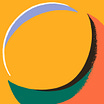Perhaps it ends where it began. The events in Tunisia this week represent a de facto coup d’état, and unless the suspension of parliament really is only for 30 days, they also end hopes for a genuine Arab democracy.
President Kais Saied fired Prime Minister Hicham Mechichi’s government and announced he would assume executive authority. He invoked Article 80 of Tunisia’s 2014 constitution which states the president can take “exceptional measures” in the event of “imminent danger” to the state. The exact nature of the danger was left unspecified but apparently required the sacking of the army’s chief prosecutor, the head of the national television station, the closure of Al Jazeera’s bureau in Tunis, and stationing soldiers around the parliament building to prevent MPs from entering. Kais has promised he will use the month-long legislative hiatus to focus on the economy and the Covid crisis.
It’s a far cry from the heady days of 2011 when Tunisia’s long self-serving dictator, Zine el Abidine Ben Ali fled to Saudi Arabia during mass demonstrations against his corrupt, repressive regime. The revolts spread to Egypt and toppled President Mubarak, onto Libya and the overthrow of Colonel Gaddafi, and then to Yemen and the fall of President Saleh. Some of the more naïve western analysts believed we were seeing the flowering of democracy in the poorly named “Arab Spring”.
The subsequent military coup in Egypt by General Sisi, the collapse of Libya and Yemen, and the mass murder in Syria put paid to those hopes as the deeper structures of Arab societies shouldered the democrats out of the way and often into a grave. But there was still Tunisia, a more homogeneous country than the others. It’s less tribal, 99 per cent of its 12 million-strong population is Sunni Muslim, and it has a better developed civil society than its regional neighbours.
The fledgling democracy survived a decade of instability, terrorist attacks, corruption, weak coalition governments, and a fragile economy. The biggest political movement, Ennahda, shrugged off its overtly Islamist Muslim Brotherhood roots, became a more conventional conservative party and came to power via relatively free elections. The country has gradually risen through the rankings in the “Freedom in the World” lists of Freedom House and, relative to its peers, is a liberal environment, especially in the bigger cities.
This is now at risk. We wait to see if the President can resist the temptations the situation he has engineered has put before him. Arab populations have a long experience of “temporary emergency measures” and know that temporary is sometimes pronounced “never ending”. Saied has said many times that the constitution is flawed and that it guarantees political deadlock. In normal times political power is divided between the presidency and parliament. In the event of a dispute between them a constitutional court makes a ruling. However, the court has never sat because of wrangling over judges. He may now want to “overhaul” definitions of the constitution.
In the past Saied has played with the idea of abolishing political parties and replacing them with the direct democracy of local councils. Colonel Gaddafi employed a similar system in his pretence of a democratic system. Constitutionally, the President cannot unilaterally change the constitution in such a manner, but he’s now taken emergency powers on grounds which most experts believe were not lawful, appears to have the army on side, and is displaying signs of believing that he is the man to save the country.
Despite this, the coup has not led to large demonstrations against him. Living standards have not improved in the decade since Ben Ali’s overthrow and most blame has gone on the parliamentarians, not the 63-year-old former law professor who only came to power two years ago. The recently sacked government has been widely criticised for its handling of the Covid pandemic which has resulted in 19,000 deaths in Tunisia.
If Saied does not restore democracy, then Tunisia will enter a dangerous period. The President is not an Islamist, but he is competing for the same supporters as Ennahda, and its leader Rashid Gannounchi, especially among the large number of young socially conservative Tunisians outside of the capital. Saied opposes normalising relations with Israel, he is for the death penalty and opposed to gay rights and more equalities for women. If he turns Tunisia back into a dictatorship, Ennahda’s experiment with parliamentary politics might turn it back to its Muslim Brotherhood roots while its more fundamentalist elements would drift towards the country’s jihadist movement. As we saw in the 2015 attack on tourists on a beach near Sousse, which killed 38 people, it remains a force to be reckoned with. The army, having shown its hand this week by deploying on the streets, has also set a modern precedent – that it is back as a political player.
Perhaps it will not come to pass. Perhaps instead of back to the future, Tunisia presses forward, and its democratic roots grow deeper after this interruption. But President Saied has given himself a month to think about it, and a month is a very long time in politics.




